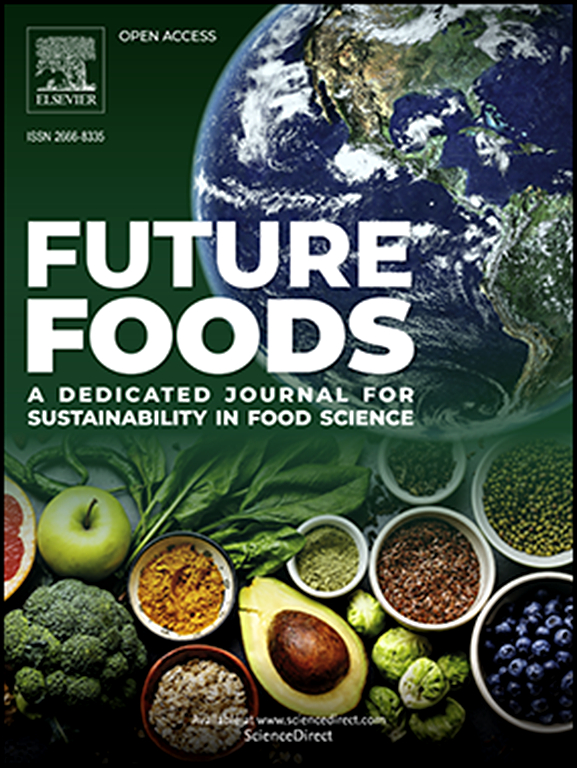Factors influencing insect burger choice in a real-life setting: A study in university restaurants in Switzerland
IF 7.2
Q1 FOOD SCIENCE & TECHNOLOGY
引用次数: 0
Abstract
This study explored factors influencing the choice of an insect-based burger in real-life settings. The insect burger was offered as a meal option at four university restaurants in Switzerland. An online survey followed, where 112 participants responded, regardless of their meal choice (69 chose the insect burger). A multivariate analysis using PROCESS examined the relationships between socio-demographic factors, food choice motives, food neophobia, disgust, and other behavioural patterns with insect burger selection. The study found that disgust, viewing insects as animal food, natural content as a food choice motive, and attitudes toward consuming insects in unrecognisable forms influenced the choice. Disgust and seeing insects as animal food had negative effects, while natural content and attitudes toward unrecognisable insect food had positive effects on burger selection. Disgust was significantly influenced by and mediated the effects of insect phobia and attitudes toward eating insects in both recognisable and unrecognisable forms. The findings highlight disgust's central role, both directly and as a mediator. Offering insect-based foods in unrecognisable forms may help reduce disgust and boost acceptance or willingness to try these products. This research contributes to the literature and can potentially benefit the insect food industry, promoting entomophagy among consumers.

求助全文
约1分钟内获得全文
求助全文
来源期刊

Future Foods
Agricultural and Biological Sciences-Food Science
CiteScore
8.60
自引率
0.00%
发文量
97
审稿时长
15 weeks
期刊介绍:
Future Foods is a specialized journal that is dedicated to tackling the challenges posed by climate change and the need for sustainability in the realm of food production. The journal recognizes the imperative to transform current food manufacturing and consumption practices to meet the dietary needs of a burgeoning global population while simultaneously curbing environmental degradation.
The mission of Future Foods is to disseminate research that aligns with the goal of fostering the development of innovative technologies and alternative food sources to establish more sustainable food systems. The journal is committed to publishing high-quality, peer-reviewed articles that contribute to the advancement of sustainable food practices.
Abstracting and indexing:
Scopus
Directory of Open Access Journals (DOAJ)
Emerging Sources Citation Index (ESCI)
SCImago Journal Rank (SJR)
SNIP
 求助内容:
求助内容: 应助结果提醒方式:
应助结果提醒方式:


